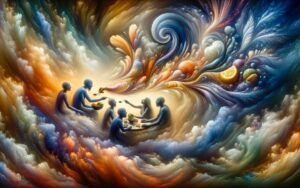Are Dreams Spiritual Or Psychological: Perspective!
Dreams can be both spiritual and psychological, depending on one’s perspective and belief system.
They are a manifestation of our subconscious thoughts, emotions, and experiences, but they can also be interpreted as messages from the spiritual realm.
There is no clear consensus on the nature of dreams, as they can be viewed through various cultural, religious, and scientific lenses.
The interpretation of dreams has been a subject of discussion across different cultures and throughout history.
Here are some perspectives:
Psychological:
For example, a dream about flying might be psychologically analyzed as a desire for freedom or escape from life’s constraints.
Spiritual:
Whether dreams serve as a bridge to the spiritual world or a reflection of our inner psyche, they remain a powerful element of the human experience, offering insights and revelations that can influence our waking life.
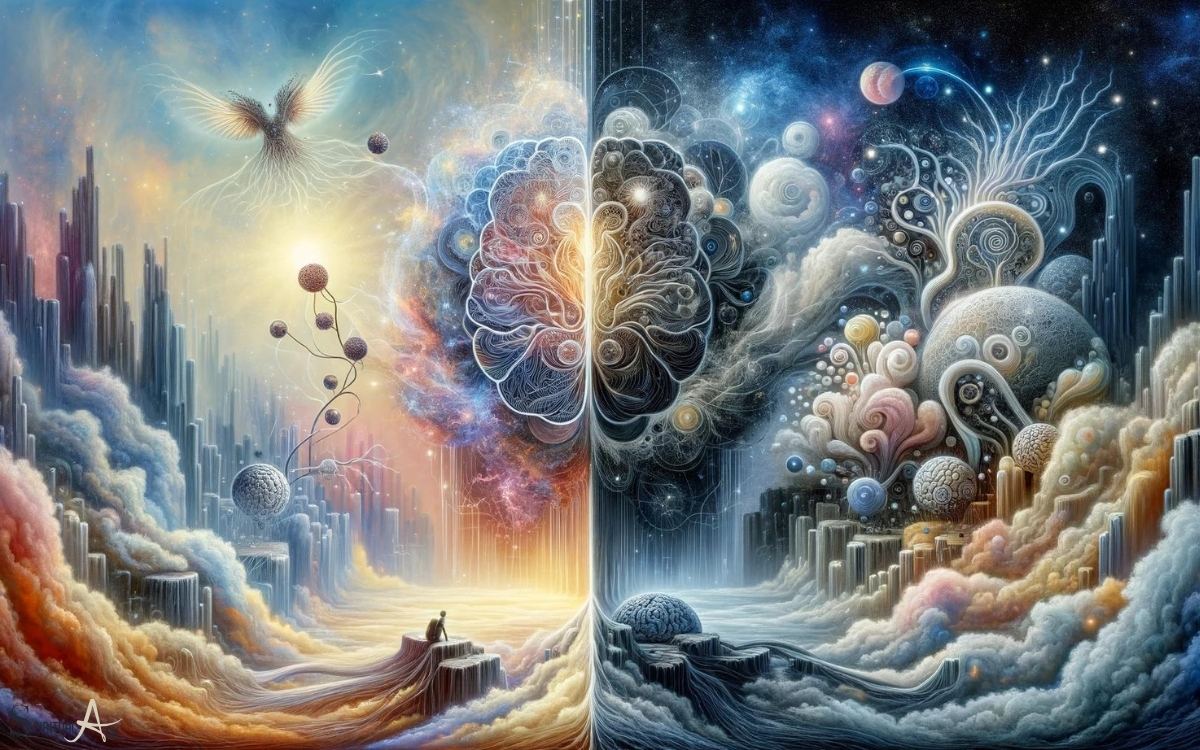
Key Takeaway
The History of Dream Interpretation
Tracing back through ancient civilizations, the history of dream interpretation reveals a rich and diverse tapestry of beliefs and practices.
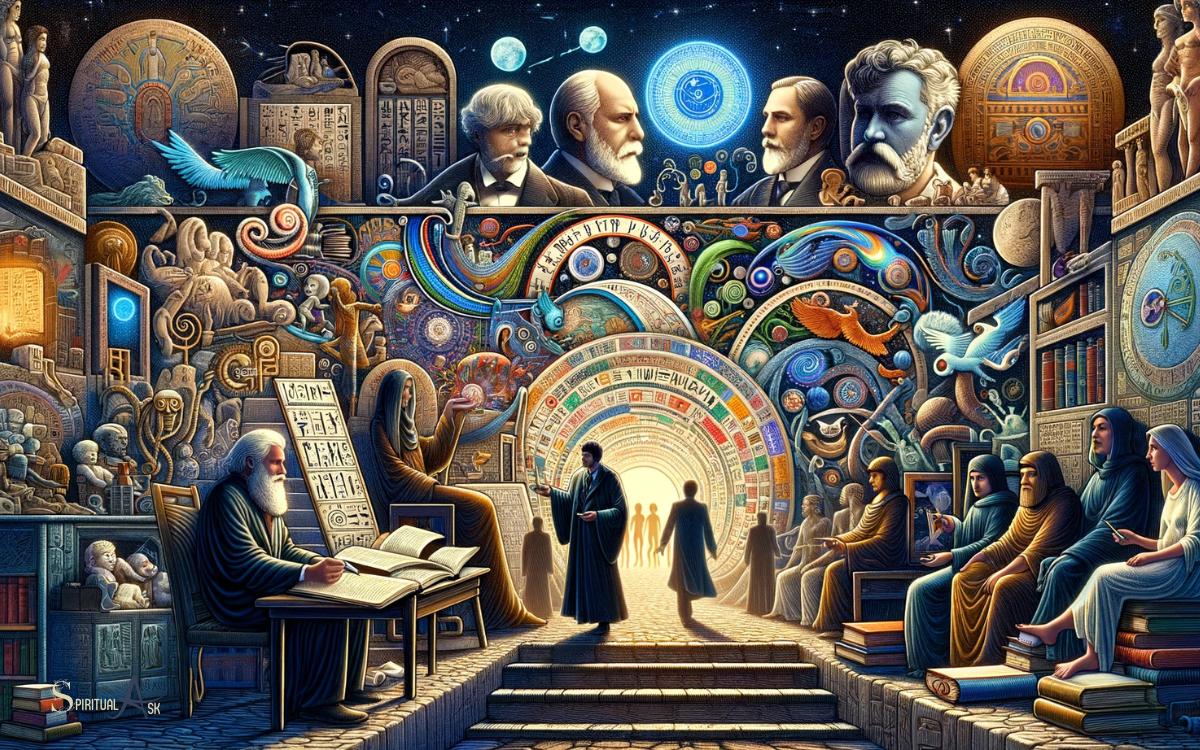
The ancient Egyptians, for instance, highly valued dreams, considering them as messages from the divine realm. They believed that dreams provided insights into the future and could offer guidance for decision-making.
In ancient Greece, the renowned philosopher Aristotle proposed that dreams were not only significant but also a reflection of internal thoughts and emotions.
Similarly, in ancient China, dream interpretation was an integral part of traditional medicine and spiritual practices.
Across these cultures and many more, the interpretation of dreams has evolved, influenced by religious, spiritual, and psychological perspectives.
Understanding the historical context of dream interpretation is crucial in appreciating the current significance of dreams in spiritual and psychological realms.
The Role of Dreams in Spiritual Practices
How do spiritual traditions incorporate the significance of dreams into their practices, and what role do dreams play in shaping the spiritual experiences of individuals?
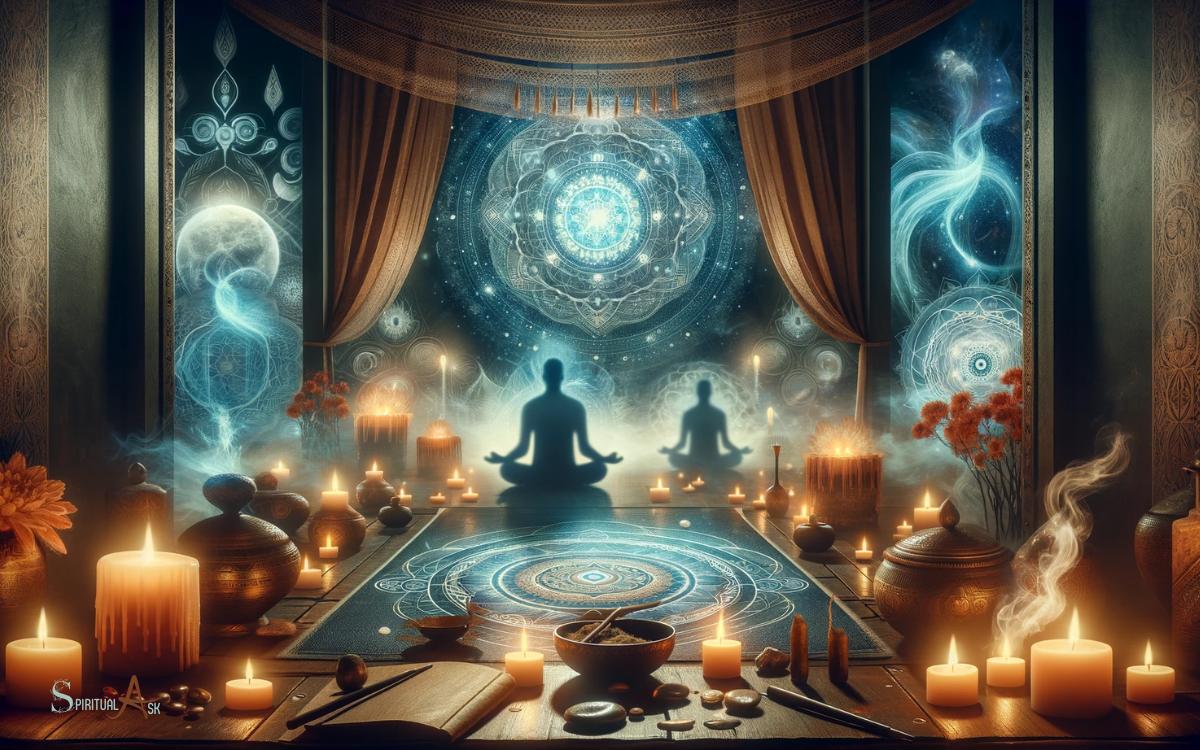
Interpretation: Spiritual traditions often interpret dreams as messages from the divine or as a means of receiving guidance from higher powers.
Symbolism: They believe that the symbolism and imagery within dreams can offer insights into one’s spiritual journey and provide answers to existential questions.
Connection: Dreams are seen as a way to connect with the spiritual realm and gain a deeper understanding of the self and the universe.
The role of dreams in spiritual practices is multifaceted, serving as a conduit for divine communication, self-reflection, and spiritual growth. Understanding this role allows individuals to integrate their dream experiences into their spiritual journeys effectively.
Transitioning to the subsequent section about ‘psychological theories on dream analysis’, it is important to consider the intersection between spirituality and psychology in understanding the nature of dreams.
Psychological Theories on Dream Analysis
When exploring psychological theories on dream analysis, it is essential to consider influential perspectives such as Freudian dream symbolism and Jung’s concept of the collective unconscious.
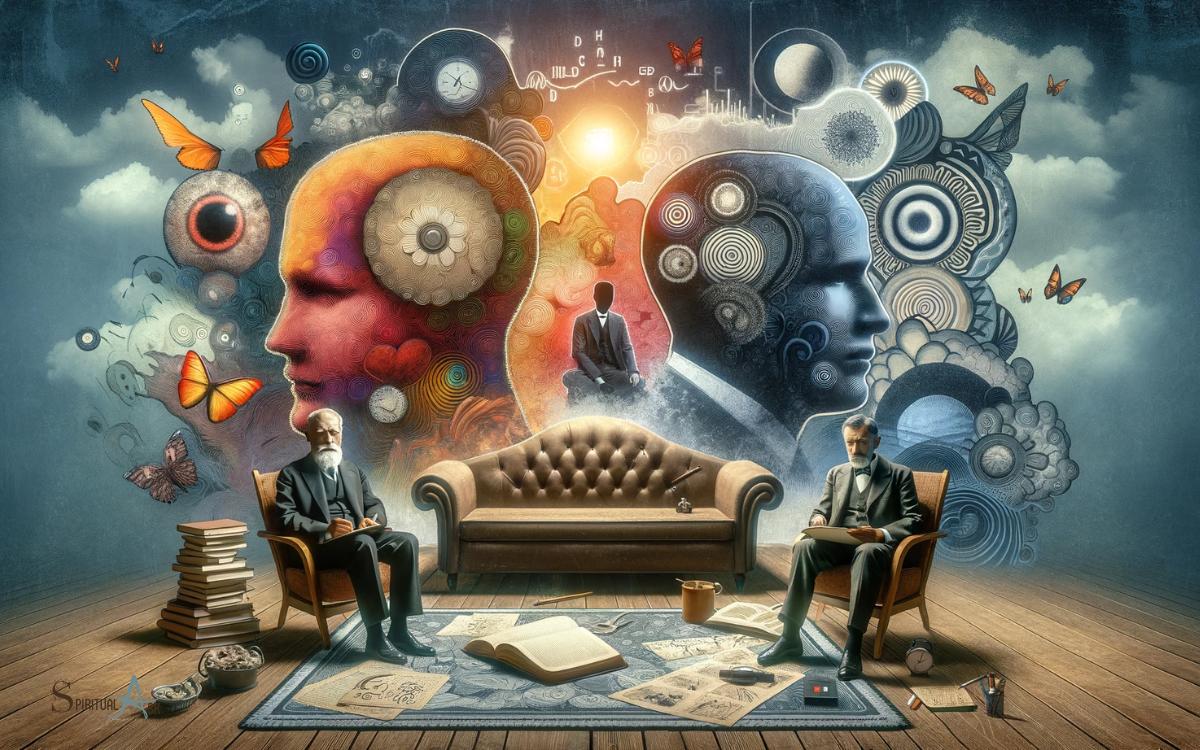
These theories provide valuable insights into the interpretation of dreams and the understanding of their psychological significance.
Freudian Dream Symbolism
The exploration of Freudian dream symbolism delves into the psychological theories and techniques used to analyze the symbolism present in dreams. Freudian dream analysis posits that dreams are expressions of unconscious desires and motivations.
The following are key points regarding Freudian dream symbolism:
- Manifest Content: This refers to the actual content of the dream as recalled by the dreamer.
- Latent Content: Freud believed that the manifest content of dreams often represents hidden, unconscious desires and thoughts.
- Symbolism: Freud suggested that many elements in dreams are symbols representing deeper, unconscious thoughts and desires.
- Sexual Symbols: Freud argued that many dream symbols are representations of sexual desires or energy.
Freud’s approach to dream analysis has had a lasting impact on psychology and continues to be a subject of study and debate.
Jung’s Collective Unconscious
Jung’s exploration of the collective unconscious further expands the psychological understanding of dream symbolism, emphasizing the interconnectedness of symbolic representations and the universal archetypes that underlie them.
According to Jung, the collective unconscious is a reservoir of experiences and symbols shared by all humans across cultures and generations.
Within this collective unconscious, there are archetypes, or universal symbols, such as the hero, the shadow, the anima/animus, and the self, which manifest in dreams and myths. Jung believed that these archetypes shape our perceptions, behaviors, and, importantly, our dreams.
Understanding the collective unconscious and its archetypes provides insight into the deeper layers of dream symbolism and the common themes that transcend individual experiences.
This understanding can enrich our interpretation of dreams and shed light on their psychological significance.
Now, let’s delve into common dream symbols and their meanings.
Common Dream Symbols and Their Meanings
As we explore the topic of dreams, it’s important to consider the common symbols that often appear in our dreams and their potential meanings.

Symbolic dream interpretations provide valuable insights into our subconscious thoughts and emotions.
Additionally, personalized dream symbol analysis and the influence of cultural factors on dream symbols are crucial aspects to consider in understanding the significance of our dreams.
Symbolic Dream Interpretations
Numerous dream symbols hold significant meanings that can provide insight into our subconscious thoughts and emotions. When interpreting dreams, it’s essential to consider common symbols and their potential interpretations.
Some common dream symbols and their meanings include:
Animals:
- Dogs: Loyalty, protection, friendship
- Snakes: Transformation, hidden fears, subconscious urges
Objects:
- Keys: Opportunities, access, secrets
- Mirrors: Self-reflection, inner truth, self-awareness
Understanding these symbols can offer valuable insights into our inner world, helping us make sense of our dreams and the emotions they may represent.
However, it’s important to note that individual experiences and cultural backgrounds can also influence the significance of dream symbols.
Personalized Dream Symbol Analysis
In the exploration of personalized dream symbol analysis, one can delve deeper into the potential meanings of common dream symbols and their relevance to individual experiences and cultural backgrounds.
Understanding the significance of these symbols in dreams can provide valuable insights into one’s psyche and emotions.
For example, common symbols like water, animals, or specific colors may carry diverse interpretations depending on the dreamer’s personal associations and life circumstances.
By examining these symbols within the context of an individual’s life, it becomes possible to unravel the subconscious messages they convey.
This personalized approach to dream interpretation allows for a more comprehensive understanding of the dreamer’s inner world and the specific challenges or emotions they may be facing. Such analysis holds the potential to offer profound clarity and self-awareness.
Transitioning into the subsequent section, it is essential to consider the cultural influences on these symbols.
Cultural Influences on Symbols
Delving into the exploration of cultural influences on symbols in dream interpretation, it is imperative to recognize the diverse meanings attached to common dream symbols across different societies and belief systems.
Cultural Variations:
- In some cultures, snakes are seen as symbols of transformation and rebirth, while in others, they may represent danger or deceit.
- Similarly, water can symbolize life and purification in some cultures, but in others, it may signify emotional turmoil or uncertainty.
Understanding these variations is crucial for a comprehensive interpretation of dreams. As individuals from different cultural backgrounds may have distinct associations with common symbols,
It is essential to approach dream analysis with an open mind, considering the rich tapestry of cultural influences that shape our subconscious imagery.
Dreams as Reflections of the Subconscious Mind
Dreams serve as reflections of the subconscious mind, offering valuable insights into the inner workings of the psyche. They can reveal underlying emotions, fears, and desires that may not be readily apparent in waking life.
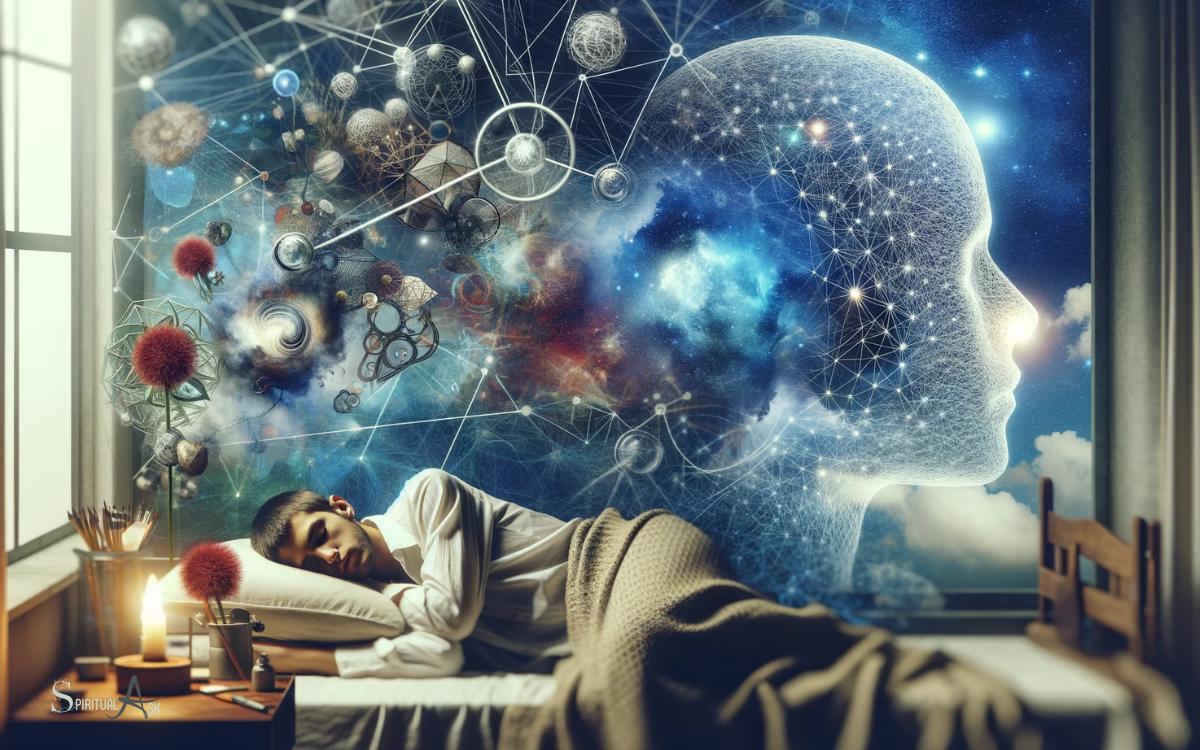
The subconscious mind uses symbolism and metaphor to communicate, and dreams provide a window into this symbolic language. By analyzing recurring themes and symbols in dreams, individuals can gain a deeper understanding of their innermost thoughts and feelings.
Here is an example of how dreams can reflect the subconscious mind:
| Emotion | Dream Symbol | Interpretation |
|---|---|---|
| Fear | Falling | Insecurity or Loss of Control |
| Desire | Water | Emotional Depth or Cleansing |
| Anger | Fire | Passion or Transformation |
| Confusion | Maze | Feeling Lost or Overwhelmed |
Understanding the subconscious messages in dreams can lead to personal growth and self-discovery.
Can Old Dreams and Flashbacks Have Psychological Meaning as Well as Spiritual Significance?
Old dreams and flashbacks can indeed hold both psychological meaning and spiritual significance.
Psychologically, they may reflect unresolved issues, deep-seated fears, or significant events from our past that continue to influence our present behavior and emotional well-being.
Spiritually, these dreams can be interpreted as messages from the subconscious or a higher power, offering guidance, warnings, or insight into our life’s path.
- Reflection of inner conflicts and desires
- Insight into personal growth and transformation
- Connection with the unconscious mind, revealing hidden truths and wisdom
The Influence of Culture on Dream Interpretation
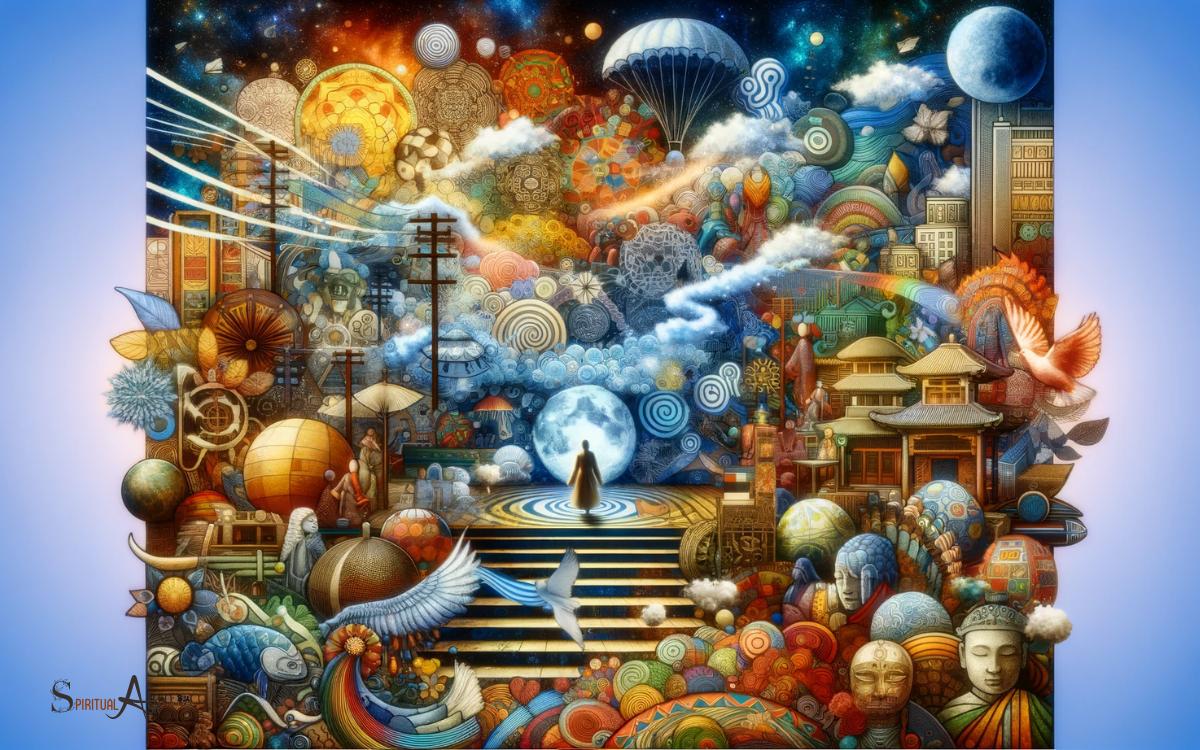
The interpretation of dreams is significantly influenced by the cultural beliefs and values of individuals and societies.
This influence can be observed in various ways:
- Symbols and Meanings Different cultures may attribute distinct meanings to common dream symbols. For instance, while a snake may symbolize evil in one culture, it may represent wisdom or transformation in another.
- Approaches to Dream Analysis Cultural perspectives shape how dreams are approached and interpreted. Some cultures may emphasize the spiritual or supernatural aspects of dreams, while others may focus more on psychological or practical implications.
Understanding the influence of culture on dream interpretation is crucial in appreciating the diversity of perspectives on this topic. This understanding can also enrich our appreciation of the depth and complexity of human consciousness.
Moving forward, it is essential to explore techniques for harnessing dream insights.
Techniques for Harnessing Dream Insights
One effective technique for harnessing dream insights is journaling, which involves recording and reflecting on one’s dreams upon waking.
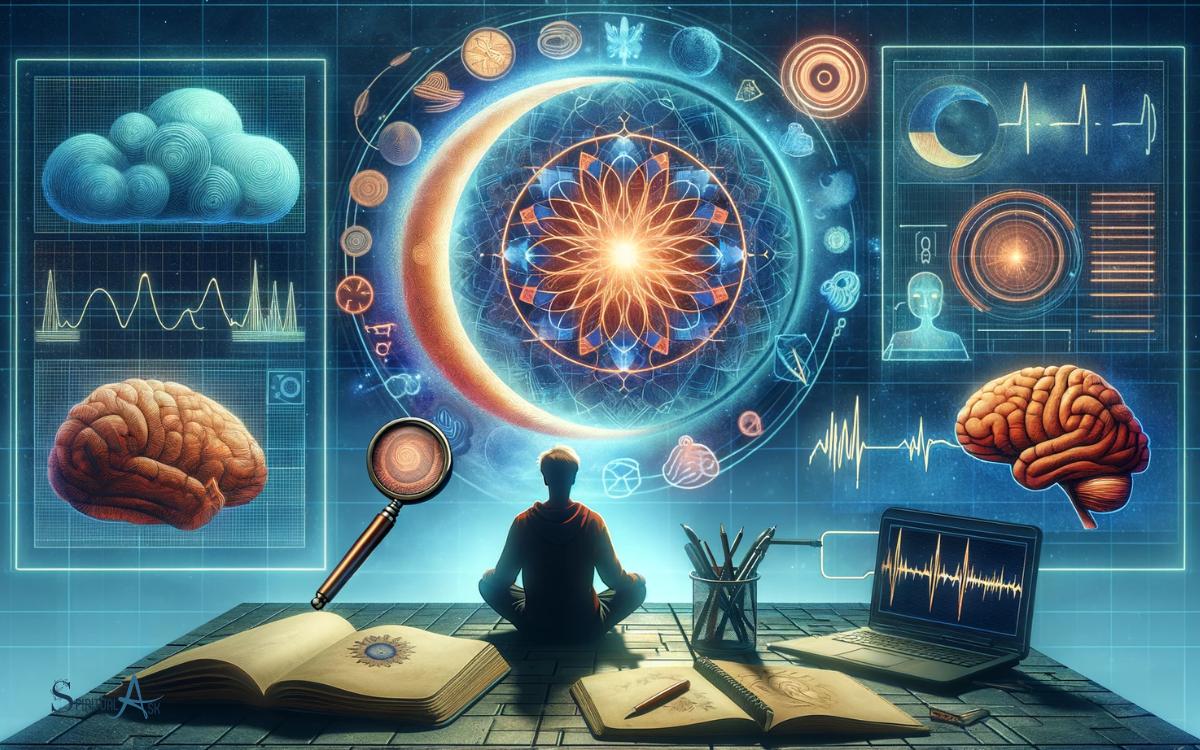
By keeping a dream journal, individuals can identify recurring themes, emotions, and symbols that may offer insights into their subconscious thoughts and emotions.
Another technique is visualization, where individuals intentionally revisit their dreams during wakefulness to explore them further. This practice can help uncover underlying meanings and emotions associated with the dream.
Engaging in open dialogue with a trusted individual or therapist about one’s dreams can also provide valuable insights and perspectives.
Additionally, practicing mindfulness and relaxation techniques can enhance one’s ability to recall and interpret dreams more effectively. These techniques can be valuable tools for individuals seeking to gain a better understanding of their dreams and their potential significance.
Does the Spiritual Meaning of a Loud Noise in Dreams Affect its Psychological Interpretation?
In dreams, a loud noise serves as a potent symbol with both spiritual and psychological dimensions.
Spiritually, it may signal an imminent transformation or a call to heed one’s deeper intuitions. Psychologically, it often reflects inner turmoil, a need for attention, or the eruption of suppressed emotions.
- Spiritual Significance: Awakening, alert, divine message.
- Psychological Meaning: Anxiety, unresolved conflict, subconscious alert.
“A loud noise in dreams is not just an auditory phenomenon but a multidimensional symbol, urging introspection and awareness.
This blend of insights underscores the loud noise as a multifaceted symbol, bridging the spiritual and psychological realms to prompt a deeper understanding of oneself.
Conclusion
The debate on whether dreams are spiritual or psychological has been ongoing for centuries. While spiritual practices often view dreams as messages from higher powers, psychological theories focus on the subconscious mind and its influence on dream content. Proponents of interpreting dreams spiritually argue that dreams serve as a means for individuals to receive guidance and insight from the divine. They believe that analyzing symbols and themes within dreams can provide important messages and guidance for individuals seeking clarity in their waking life. However, psychological perspectives argue that dreams are a reflection of an individual’s thoughts, emotions, and experiences, and can be understood through the framework of neuroscience and cognitive psychology. On the other hand, proponents of spiritual dream interpretations believe that dreams are a powerful tool for self-discovery and personal growth. They argue that by exploring the spiritual meaning behind dreams, individuals can tap into their inner wisdom and uncover hidden truths about themselves and their life’s purpose. Ultimately, the debate between spiritual and psychological interpretations of dreams reflects the complexity of human consciousness and the diverse ways in which individuals seek meaning and understanding in their lives.
Regardless of the interpretation, dreams offer valuable insights into the human psyche and can be harnessed for personal growth and self-discovery. Just as a mirror reflects our physical appearance, dreams reflect the inner workings of the mind.

